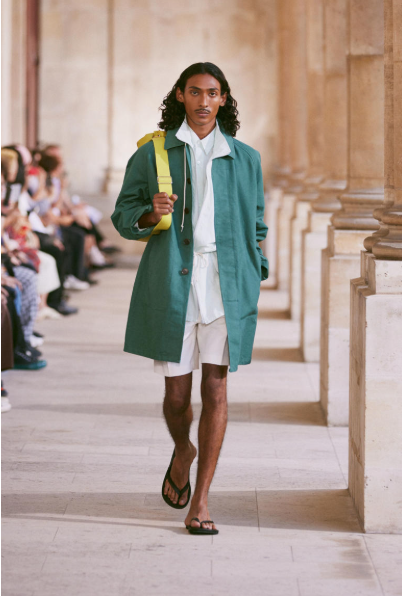On the 1st weekend of Coachella in 2025, Charli XCX took the festival by storm. In true brat fashion, her set included several guest appearances by pop icons Billie Eilish, Lorde, and Troye Sivan. Troye appeared wearing what, at first glance, looked like a plain white t-shirt. However, once projected onto the stage-length display screens, the message on his shirt became clear: “Protect the Dolls”.
The phrase “Protect the Dolls” is a slogan meant to support the transgender community, especially transgender women (affectionately referred to as “dolls”). It first emerged in the ballroom scene of the 1980s—an urban subculture of self-expression for queer people of color. Today, the phrase is still used within the transgender and broader LGBTQ community as a message of support and solidarity.
29-year-old fashion designer, Conner Ives, reimagined the slogan on the runway in February. He wore the t-shirt to close his Autumn/Winter fashion show after spontaneously creating it the night before. The t-shirt quickly made waves in the fashion world; “It was very reactive,” he told the New York Times on April 18, 2025. It wasn’t long before the shirt became available on the Conner Ives online store. The sales of the t-shirt directly raise funds for Trans Lifeline, a trans-led US- based charity.
Now sported by a number of celebrities including Pedro Pascal, Addison Rae, and Madonna, the iconic t-shirt ignited a cultural dialogue by reviving a simple phrase.
The three words, however, hold a stronger significance in light of recent federal policies concerning transgender people. The Trump administration has enacted several federal actions in 2025 that have significantly impacted the transgender community. These include an executive order banning transgender individuals from serving in the military and threats to withhold $24 million in grant funding from several school districts due to their support for the transgender community. In 2025 alone, numerous efforts have been made by the federal government that challenge the recognition and rights of transgender individuals in America.
“Protect the Dolls” is an expression born in response to increasing challenges faced by the transgender community. And, although simple, the movement has amplified a message of mutual support within queer spaces.







